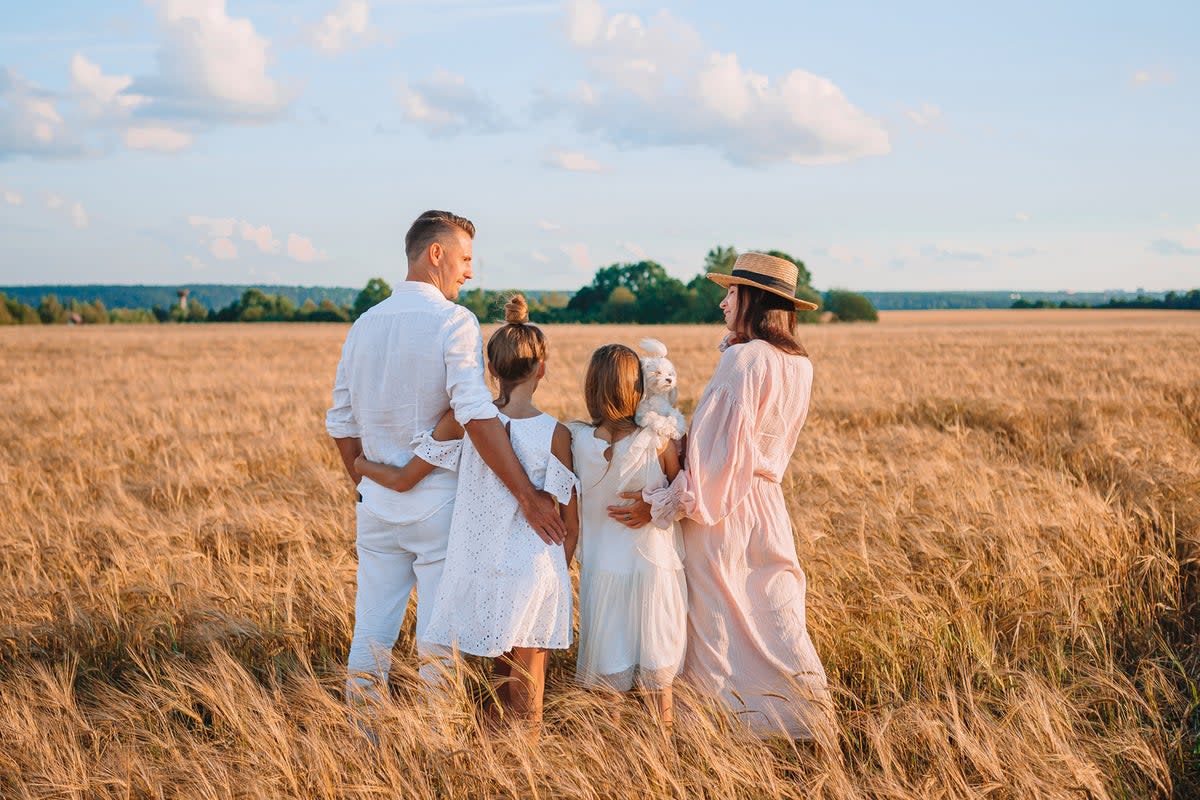Voices: I’ve seen the harm that ‘trad-mumfluencers’ can do to young women

Rosy-cheeked, blonde tresses flowing and clad in a smocked dress, Jasmine Darke – an Australian stay-at-home mother and social media influencer, whose “traditional womanhood” feed has around 150,000 followers – laughs with her daughter as they whizz up home-baked treats in a shiny Magimix processor on her sparkling worktop. I find myself mesmerised by her Instagram posts that paint a picture of domestic bliss… and I’m not alone.
Jasmine is part of a tantalising new trend of young, “traditional motherhood” mumfluencers, who have swapped career and independence in favour of full-on femininity, family, faith and firm submission to their husband. Because, as she puts it: “Men don’t want boss babes – they want homemakers.”
As a clinical psychologist, I work with women who feel crushed by the impossible ideals of being a modern mother. I’ve also seen mumfluencer fads come and go. But this new trend – the trad-mumfluencer – is genuinely shocking. The topic has more than 300 million views on TikTok, and the messaging beneath the perky reels and pristine kitchens is more sinister – and more damaging to women – than you might think.
Leading the charge are Americans like Hannah Neeleman, a Mormon businesswoman who competed in a beauty pageant just 12 days after home-birthing her eighth child; and Estee C Williams, a TikToker and trad wife who dresses like Marilyn Monroe in an apron and rejects modern feminism in favour of cooking (from scratch), cleaning and making her husband’s home “his sanctuary”. She advises trainee trad-wives online to maintain their appearance because men “are very visual”.
In the UK, Cotswolds trad-wife Alena Kate Pettitt instructs wannabes on “how to be beautiful” via her online finishing school, The Darling Academy. These women want you to believe that their escape from a dangerous, broken modern world is the solution to a better future.
Of course, it’s seductive. This week, Hitch star Eva Mendez revealed that she stepped away from acting to focus on raising her daughters, enabling her husband Ryan Gosling to get on with his Hollywood career. Even Meghan Markle has leaned into trad-mom ideals, launching her new American Riviera Orchard lifestyle brand on social media with posts about her homemade strawberry jam.
But this cult of domesticity – which requires the resumption of traditional, patriarchal gender roles – is a rebellion against the chaos and uncertainty felt by young people today; its male counterpart is influencer Andrew Tate. Virginia-based Williams, for example, saw her mother trying to “do it all” before her parents divorced, and views her “choice” to take up traditional gender roles as a return to “order”. It also affirms that which underlies the trad-wife trend: fear and discontent.
Weighed down by pressures to parent perfectly in the absence of a “village”, mothers are increasingly burnt out, anxious and angry. In my clinic, I notice the policing effect of these trad-mumfluencers, along with Instagram trends such as gentle parenting. It leaves mums suppressing their own emotions in efforts to prioritise their child’s needs – and ends in exploding rage when, understandably, striving for perfection becomes too much.
According to new data, published in the Journal of Broadcasting & Electronic Media Research, mumfluencers not only increase anxiety and envy among new mums, the image they project of picture-perfect parenthood can even lead some to question their role as mothers and their ability to bring up a baby.
For what these trad mums peddle is an illusion, one that not only threatens women’s liberty and human rights, but also offers a “choice” only available to a certain demographic – namely, white, Christian, upper-middle class and the privileged, whose submission to a husband’s financial control looks very different for women profiting from their online popularity. (Neeleman’s account promoting simple farm living was lambasted after it emerged her husband’s father owns an airline.)
Romanticising the 1950s cult of domesticity is part of the illusion. A time when women couldn’t own a bank account, marital rape was legal and the hard grind of child-raising and domestic labour led many women to despair. The American home-making “dream” didn’t extend to women of colour. In the trad-wife reels, I see no signs of domestic drudgery – certainly, no hoovering in sight – or the nannies and cleaners that these tasks are outsourced to. And herein lies the real risks of this narrow vision.
The trad-wife trend reinforces the myth that we can all be Supermum – endlessly calm, “naturally” maternal, and loving our role. This fairytale is deeply oppressive to women. I see the consequences in my clinical work, with mothers struggling to recognise their own needs, let alone voice them.
I have watched online in dismay as Neeleman contorts her postpartum body – with an army of helpers – to compete in the beauty pageant. On an individual level, idealising the postpartum experience denies the terrors and rewards of mothering in all its rich complexity. It sets women up for self-punishment and failure. And it denigrates women who choose not to or who can’t have children. On a wider level, it devalues unpaid caregiving work.
At the start of Maternal Mental Health Awareness Week, what women really need is affordable childcare, equal pay, flexible working and paid leave. That would significantly improve maternal mental health, paving the way for a more just society for families.
And a mumfluencer who championed those things would be one even I could get behind.
Dr Caroline Boyd is a clinical psychologist offering specialist anger support for mothers (drcarolineboyd.com). For details of Maternal Mental Health Awareness Week (until Sunday 5 May), highlighting mental health problems before, during and after pregnancy, go to maternalmentalhealthalliance.org


